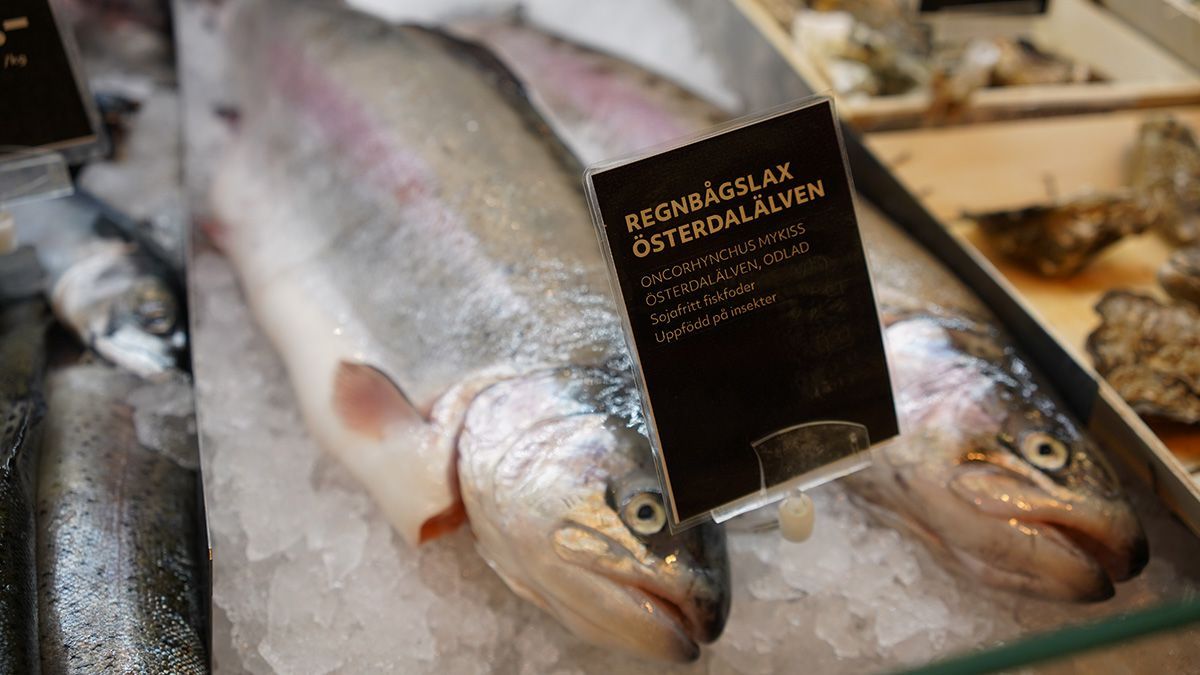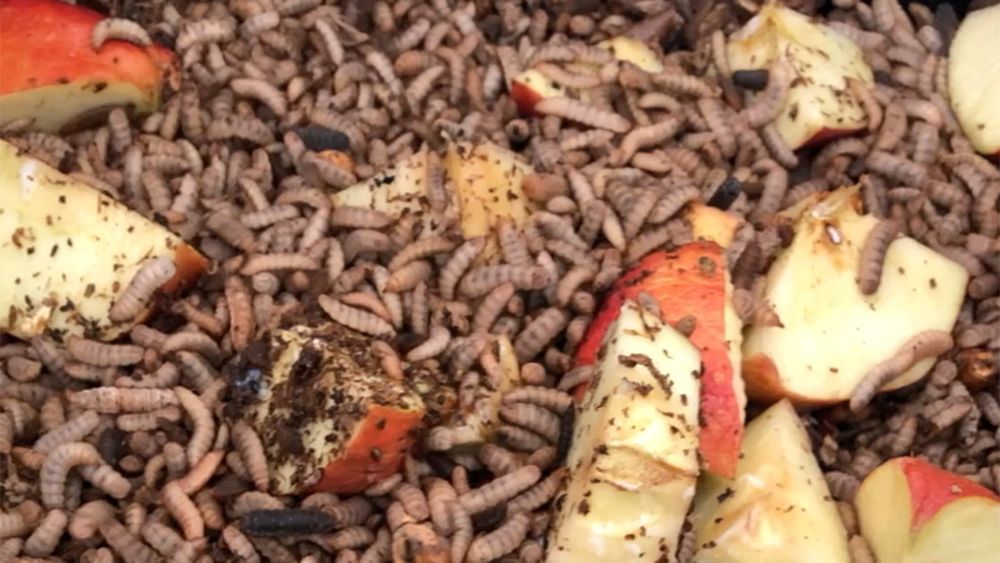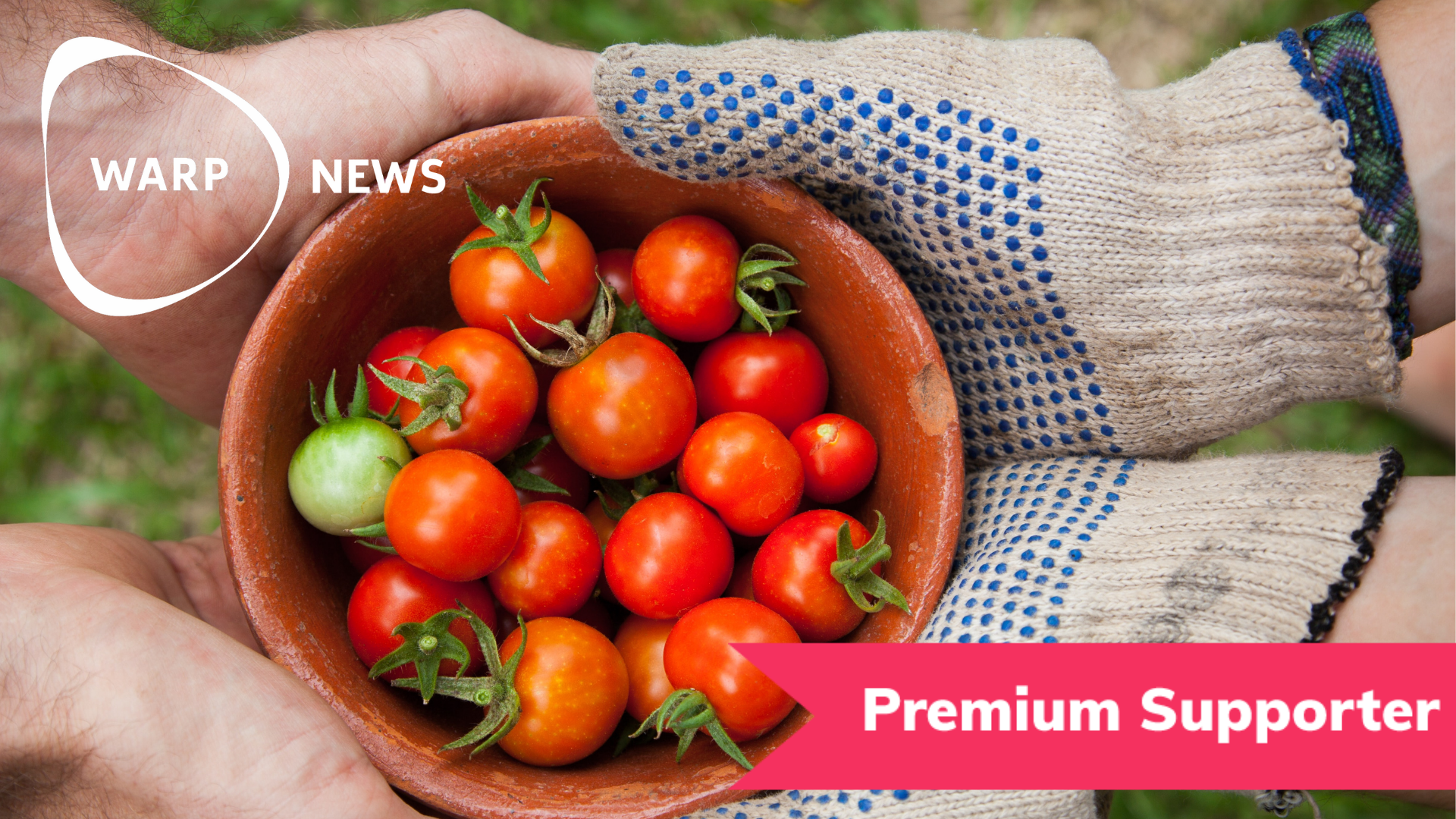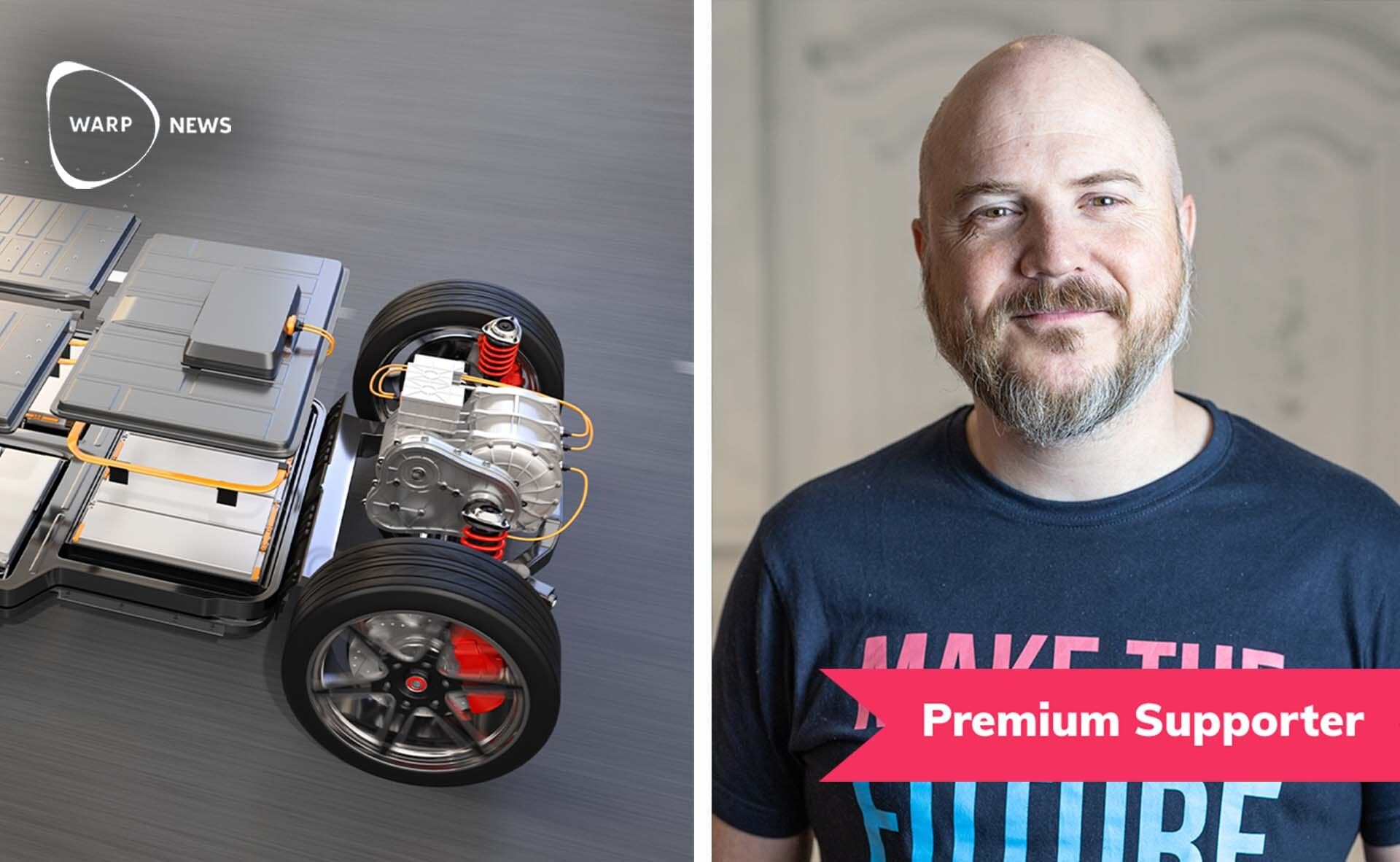
🐟 Insects make farmed salmon more sustainable
Fish raised on insect feed have a much lower environmental impact than fish that have received traditional fish-based feed.
Share this story!
Farmed fish can give us environmentally friendly fish on our plates, but the feed is a problem. The feed often consists of wild-caught fish, which is often also mixed with soy. The soy can in turn come from plantations where rainforest has been cut down to make room for cultivation.
Researchers from the Swedish University of Agricultural Sciences, SLU, and Axfoundation now hope to be able to change that. Their idea is to use insect larvae to produce food. The insects, in turn, should eat vegetable waste and leftover bread.
"It is a huge waste of resources to let farmed fish eat soy from Brazil and fish from the Pacific Ocean, at the same time as tons of food are thrown away in Sweden. The food waste can instead be used to raise insects, an excellent food for fish. Our food should simply not eat our food", says Madeleine Linins Mörner, program manager for Future Food at Axfoundation, in a press release.

The insects are an adequate feed for the fish and require much fewer resources than feed based on fishing and long transports of soy.
"We have to find alternative feed sources and that is where the insects come in. It is an animal protein, which means that the amino acid composition is better than for vegetable protein sources. And the most amazing thing about the larvae is that they can be raised on waste, so it becomes a circular closed system. You do not need to add much new nutrients, but can effectively reuse the existing nutrients. Therefore, the insects are very good in feed production", explains Cecilia Lalander, researcher at SLU.
The feed has already been used to raise rainbow salmon that has been sold to some shops and restaurants. The researchers hope that insect feed will now become more the rule than the exception in fish farms.
"It is quite possible to transform the food industry's waste from cost to resource and grow seafood on a large scale, which at the same time reduces eutrophication. This project shows the feed industry that it is possible to make a circular feed with an economic basis and it is a necessity for the industry to dare to take the next step", says Anders Kiessling, professor at SLU.
By becoming a premium supporter, you help in the creation and sharing of fact-based optimistic news all over the world.


